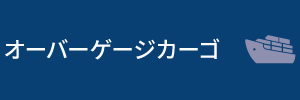HOME > ジャパトラブログ&ニュース
2020年03月11日
コラム/最適物流の科学㊽
最適物流の科学
弊社社長の菅が、2017年12月に『最適物流の科学―舞台は3億6106万平方km。
海を駆け巡る「眠らない仕事」』という書籍を出版しました。
そこで、本ブログでも、その書籍から抜粋した内容を
毎週1話ずつ、ご紹介していきたいと思います。
第四十八回となる今回は、「日本籍船・日本人船員が激減した背景は」というテーマで「外国籍船が九割以上を占める日本の実情」をお話しいたします。
↓
↓
——————————————————————————————————–
「外国籍船が九割以上を占める日本の実情」
海運業界の現状として、外国籍の船が増加していることにも注目しておく必要があります。船は海上を航行するにあたって、いずれかの国に登録する必要があります。その登録国籍を船籍といいます。序章で二〇一七年六月に起きた衝突事故について記しましたが、その当事者となったコンテナ船ACXクリスタルはフィリピン船籍でした。二〇人の乗務員も同様に全員がフィリピン国籍でした。この例のように、日本の船会社が運航する船でありながら、船籍も乗務員も日本籍でないといったケースは今日では珍しいことではありません。
一九七〇年ごろは、日本商船隊(日本の外航海運会社が運航する商船)のうち、日本籍船は五割を超えていました。しかし、一九七八年には外国籍船の割合が日本籍船を上回ります。その後も日本籍船減少の傾向は続き、二〇〇〇年代に入る頃にはその割合は一〇%を下回る水準にまで減少しました。さらに二〇〇八年には三・七%にまで落ち込みました。
日本商船隊の構成を見ると、国・地域別ではパナマが六一・三%(一五七〇隻)と圧倒的な比率を占めています。次いで日本七・七%(一九七隻)、リベリア五・九%(一五二隻)、シンガポール五・三%(一三七隻)、香港四・四%(一一二隻)などと続きます(二〇一五年)。
日本の船舶法では、日本の船舶はその所有者の住所地に船籍港を置くことが規定されています。しかし、パナマやリベリアといった国にペーパーカンパニーを設立し、そこに船籍を置く場合があります。こうした船を便宜置籍船と呼びます。外国に船籍を置く最大の理由は税金対策です。同時に大きな目的となっているのが、外国人船員を乗せることにあります。日本籍船には日本の免許を持った船員の乗船が義務付けられていますが、外国籍船であればそうした制約を受けません。外国人船員を乗せた方がコストを削減できるため、船会社はそうした選択をしているのです。
便宜置籍船が増えることは、税収、日本人船員の雇用といった点で我が国に不利益をもたらします。また便宜置籍国の海運の発展を阻害するといった問題も指摘されるなど、この傾向に対して批判的な意見が多いことも事実です。とはいえ過当競争が繰り広げられている海運業界において、船会社がコストの高い日本籍船を所有するのは難しいという現実があります。
問われる日本籍船を保持する意味
二〇一一年の東日本大震災に際して、日本の海運業界はその復興支援に大きな力を発揮しました。内航海運業界は震災発生からまもなく対策本部を設置し、業界を挙げて救援物資などの輸送を開始しました。外航海運業界も、日本船主協会と川崎汽船、商船三井、日本郵船の各社が協力し、海外から被災地に向けて物資の輸送を行ないました。
一方で海外の船会社の中には、日本への寄港を回避する動きが見られました。リベリアなどは、福島第一原発事故による放射能漏れへの懸念から、一定距離内の海域での航行回避を推奨する勧告を出しました。ドイツのある船会社は、本社の指示で京浜港への寄港を取りやめました。同様に各船会社の判断で外航船舶の日本への寄港を回避するケースが相次ぎます。さらには、外国人船員が日本船舶への乗船を拒否したり、外国の港で日本の外航船が入港を断られたりするケースもありました。
一連の出来事は、いずれも原発事故に関する風評に起因するものです。正確な情報が伝わると同時にそうした動きは終息に向かいましたが、日本の非常時に際して、諸外国が必ずしも協力的な態度を示してくれるわけではないことを知らされる事象でもありました。
日本が戦争に巻き込まれるような事態が起きた場合は、そうした懸念がさらに高まります。古今東西、戦争の勝敗は兵站(ロジスティック)の構築・維持が左右してきたと言っても過言ではないでしょう。現代の戦争において、軍事物資輸送の主力を担っているのがコンテナ船です。つまり、コンテナ船をどれだけ確保できるかが、国の命運を左右するともいえるのです。
先の太平洋戦争で日本が敗れた要因は、ロジスティクス戦略の欠乏によるところが大きいともいわれています。当時、アメリカの潜水艦は、日本の戦艦を狙わず、輸送船を集中的に攻撃しました。そうすることで、リスクのある戦闘をすることなく効率的に日本の前線兵力を消耗させていったのです。戦争そのものを避けるよう最大限の外交努力をすることが重要であるのはいうまでもありません。しかし、もし万が一戦争という事態に突入してしまった場合のことを考えると、(ここでは多くは語りませんが)かつて太平洋の島々で起きた悲劇的な出来事が二度と繰り返されないよう、やはり兵站を担う輸送船を平時から保持しておくことも欠かせないでしょう。
先に見たように、今日では日本と外国の港を行き来する船の多くが外国籍で、乗務員も外国籍を持つ人たちが多くを占めています。平時においては支障がなくても、想像を超える災害発生時や戦争などの有事に際してそれらの船が日本のために動いてくれるかどうかが強く懸念されます。
政府も日本籍船が極めて少ない状況を憂慮し、さまざまな取り組みを始めています。その一つが、一九九六年に導入された国際船舶制度です。日本籍船のうち国際海上輸送を確保する上で重要な船舶を国際船舶と位置付けて、一定の要件を満たす船舶については海外への譲渡、貸渡に際して届出制・中止勧告制を取るというものです。このような船舶に対しては、税制上の支援措置が講じられます。他にも外国籍船を日本籍船にするための変更手続き(フラッグバック)の見直し、改善に向けた取り組みも進められています。こうした施策により二〇〇九年以後は日本籍船の数が増加に転じ、二〇一五年には七・七%まで回復しています。
海運業者は、荷主の利益を第一に考える必要があります。その前提として、業界内で生き残っていくために、自社の利益を追求することも否定されるものではありません。ただし有事に際しては、事業者が国民全体の利益を最優先に考えることも重要になってきます。
また、万が一国際的な合併等によって、外航海運を担う日本の船会社がなくなったとしても、日系の物流会社が市場をコントロールするだけの力を持ち続ける必要があります。有事に際しては、そうした日系物流会社が存在することも欠かせないのです。
- Background of the sharp decline of Japanese flag ship and Japanese crew
Facts of Japan where foreign vessels account for more than 90% of the ships it operates.
It is also necessary to pay attention to the increasing number of foreign-owned vessels as the current situation of the shipping industry. Ships sailing over the sea need to register in one of the countries. That registered nationality is called a flag country. I wrote in the introduction about the collision accident that occurred in June of 2016. The container ship ACX Crystal was a Filipino flag. Likewise, all 20 crew members were Philippine nationality. As in this example, it is not uncommon today that shipping companies and crew members are not Japanese nationality while being operated by Japanese shipping companies.
Around the time of the 1970s, among Japanese merchant fleets (merchant ships operated by an international shipping company of Japan), Japanese flag ships exceeded 50%. However, in 1978 the percentage of foreign vessels exceeded that of Japanese-flagged vessels. Thereafter, the ships of Japanese flags continued to decrease, and the rate decreased to less than 10% around the time of the 2000s. Furthermore, it fell to 3 ·.7% in 2008.
Looking at the composition of the Japanese merchant fleets, Panama is occupying an overwhelming proportion of 61.3% (1570 vessels) by country and region. Next, with 7.7% of Japan (197 vessels), Liberia 5.9% (152 vessels), Singapore 5.3%(137 vessels), Hong Kong 4.4%(112 vessels) and others (2015).
According to the Ship Law of Japan, it is stipulated that each ship in Japan shall have a port of registration at the address of its owner. However, there are cases where a paper company is established in a country such as Panama or Liberia, and the ship is registered there. These vessels are called convenience vessels. The biggest reason for putting a ship’s flag in a foreign country is for tax protection. At the same time, another main objective is to have foreign seamen on board. Japanese ships are obliged to board the crew with the Japanese license, but if it is a foreign nationality ship, this rule is excluded. The shipping company is making such a choice because it is possible to reduce the cost by putting foreign seamen.
Increasing the number of convenience vessels brings disadvantages to Japan in terms of tax revenue and employment of Japanese seafarers. It is also pointed out that there are many critical opinions against this practice, which causes such problems as impeding the development of maritime transport in conveniently registered countries. However, in the shipping industry where fierce competition is spreading, the reality is that it is very difficult for a shipping company to own a costly Japanese-flagged ship.
What is the meaning to hold Japanese flagged vessels?
On the occasion of the Great East Japan Earthquake of 2011, the Japanese shipping industry showed great strength in supporting its reconstruction. The shipping service industry set up a headquarters soon after the earthquake occurred, and started transporting relief goods, etc. In the international shipping industry, the shipowners’ association and Kawasaki Kisen Kaisha, Mitsui OSK Lines, and NYK Line companies cooperated to transport goods from abroad to affected areas.
Meanwhile, some overseas shipping companies chose to avoid calling in Japan. Liberia and others issued a recommendation to navigation in sea areas within a certain distance due to fears of radiation leakage due to the Fukushima Daiichi Nuclear Power Plant accident. A certain shipping company in Germany canceled the call to Keihin port at the direction of its headquarters. Likewise, at the discretion of each shipping company, there were more cases where foreign shipping vessels avoided calling in Japan. Furthermore, there were cases where foreign crew refused to board Japanese ships, or where Japanese vessels were refused entry at foreign ports.
These series of events are all attributable to rumors about nuclear power plant accidents. After accurate information was conveyed to the world, such movements ended, but we learned from this lessen that Japan’s emergency situation does not necessarily invite cooperative attitudes from other countries.
If a situation such as Japan get caught up in war, that concern will be further raised. It is not an exaggeration to say that in all times the construction and maintenance of logistics crucially influenced the war victories or defeats worldwide. In modern warfare, the container ships have been responsible as the main force of military goods transport. In other words, it can be said that how much you can secure container ships sways the country’s fate.
It is said that the defeat of Japan in the past Pacific War was largely due to the lack of logistics strategy. At that time, the American submarine intensely attacked the transport ships instead of aiming at the Japanese battleships. By doing so, America exhausted Japan’s front line force efficiently without engaging in risky battles. It goes without saying that it is important to make the utmost diplomatic efforts to avoid the war itself. However, considering what will happen if we should go into a major war (I will not say much here) and in order not to repeat the tragic events that once occurred in the islands of the Pacific, it will be indispensable to keep shipping ships for wartime logistics even in the days of peacetime.
As I mentioned earlier, today most of the ships that cross the ports of Japan and foreign countries are foreign flags, and the crew members are also dominated by those with foreign nationality. Even without trouble in peacetime, it is very doubtful whether those ships will move for Japan in the event of an unimaginable disaster or in case of an emergency such as war. Regarding concerns about the situation where the Japanese flag ships are extremely few in number, the government has started various initiatives. One of them is the international shipping system introduced in 1996. Ships that are important in securing international maritime transport among Japanese flagged vessels are regarded as international ships and vessels as long as they meet certain requirements. Their requirements include the duty to report their transfer and lending to overseas countries under the supervision of the Japanese government. For such ships, taxation support measures are taken. We are also reviewing the change procedures (flag back) for making foreign vessels into Japanese-flagged vessels and initiatives to improve them. With these measures, the number of Japanese-flagged vessels began to increase after 2009 and recovered to 7.7% by the year of 2015.
The shipping industry companies need to think first of the shipper’s interests. As a prerequisite, it is regarded as a matter of course to pursue the company’s interests in order to survive within the industry. However, it is also important for operators to consider the interests of the people as a top priority at the time of emergency.
Also, even if there are no Japanese shipping companies that are responsible for international shipping due to international mergers, etc., Japanese logistics companies need to maintain the power to control the market. In case of emergency, it is essential that such a Japanese logistics companies exist.
——————————————————————————————————–
つづく。
次回は、「過当競争の荒波を越えて」というテーマで「適正運賃が荷主の利益を守る」をお話しいたします。
ご興味を持っていただけ高田、続きを一気にご覧になられたい方は、ぜひアマゾンでお求めください♪
最適物流の科学――舞台は3億6106万平方km。海を駆け巡る「眠らない仕事」
https://www.amazon.co.jp/dp/4478084297/
北米向けコンテナ海上輸送(FCL)のエキスパート!詳しくはこちらから。
工作機械・大型貨物・重量物などのフラットラックコンテナ、オープントップコンテナ海上輸送ならおまかせ!詳しくはこちらから。
コンテナのサイズ表はこちらから。
投稿者
ジャパントラスト株式会社
- ブログ (462)
- コラム/最適物流の科学 (52)
- ニュース (160)
- 2025年12月 (2)
- 2025年11月 (2)
- 2025年10月 (2)
- 2025年9月 (3)
- 2025年8月 (2)
- 2025年7月 (4)
- 2025年6月 (3)
- 2025年5月 (4)
- 2025年4月 (4)
- 2025年3月 (4)
- 2025年2月 (4)
- 2025年1月 (4)
- 2024年12月 (3)
- 2024年11月 (2)
- 2024年10月 (2)
- 2024年9月 (4)
- 2024年8月 (5)
- 2024年7月 (5)
- 2024年6月 (5)
- 2024年5月 (4)
- 2024年4月 (5)
- 2024年3月 (6)
- 2024年2月 (3)
- 2024年1月 (3)
- 2023年12月 (5)
- 2023年11月 (4)
- 2023年10月 (3)
- 2023年9月 (4)
- 2023年8月 (4)
- 2023年7月 (3)
- 2023年6月 (3)
- 2023年5月 (4)
- 2023年4月 (4)
- 2023年3月 (4)
- 2023年2月 (4)
- 2023年1月 (3)
- 2022年12月 (3)
- 2022年11月 (3)
- 2022年10月 (4)
- 2022年9月 (3)
- 2022年8月 (4)
- 2022年7月 (9)
- 2022年6月 (6)
- 2022年5月 (8)
- 2022年4月 (6)
- 2022年3月 (7)
- 2022年2月 (5)
- 2022年1月 (6)
- 2021年12月 (3)
- 2021年11月 (8)
- 2021年10月 (5)
- 2021年9月 (4)
- 2021年8月 (7)
- 2021年7月 (4)
- 2021年6月 (4)
- 2021年5月 (6)
- 2021年4月 (3)
- 2021年3月 (5)
- 2021年2月 (2)
- 2021年1月 (6)
- 2020年12月 (4)
- 2020年11月 (3)
- 2020年10月 (3)
- 2020年9月 (6)
- 2020年8月 (1)
- 2020年7月 (2)
- 2020年6月 (3)
- 2020年5月 (4)
- 2020年4月 (6)
- 2020年3月 (5)
- 2020年2月 (6)
- 2020年1月 (5)
- 2019年12月 (5)
- 2019年11月 (4)
- 2019年10月 (7)
- 2019年9月 (6)
- 2019年8月 (3)
- 2019年7月 (3)
- 2019年6月 (2)
- 2019年5月 (6)
- 2019年4月 (7)
- 2019年3月 (5)
- 2019年2月 (7)
- 2019年1月 (3)
- 2018年12月 (2)
- 2018年11月 (2)
- 2018年10月 (1)
- 2018年9月 (1)
- 2018年8月 (3)
- 2018年7月 (2)
- 2018年6月 (4)
- 2018年5月 (1)
- 2018年4月 (3)
- 2018年3月 (3)
- 2018年2月 (6)
- 2018年1月 (1)
- 2017年12月 (1)
- 2017年11月 (6)
- 2017年10月 (2)
- 2017年9月 (4)
- 2017年8月 (4)
- 2017年7月 (1)
- 2017年6月 (5)
- 2017年5月 (3)
- 2017年4月 (5)
- 2017年3月 (1)
- 2017年2月 (3)
- 2017年1月 (7)
- 2016年12月 (4)
- 2016年11月 (4)
- 2016年10月 (7)
- 2016年9月 (7)
- 2016年8月 (7)
- 2016年7月 (7)
- 2016年6月 (6)
- 2016年5月 (6)
- 2016年4月 (2)
- 2016年3月 (6)
- 2016年2月 (11)
- 2016年1月 (6)
- 2015年12月 (5)
- 2015年11月 (5)
- 2015年10月 (5)
- 2015年9月 (8)
- 2015年8月 (8)
- 2015年7月 (8)
- 2015年6月 (9)
- 2015年5月 (3)
- 2015年4月 (3)
- 2015年3月 (8)
- 2015年2月 (6)
- 2015年1月 (2)
- 2014年12月 (5)
- 2014年11月 (5)
- 2014年10月 (6)
- 2014年9月 (5)
- 2014年8月 (7)
- 2014年7月 (4)
- 2014年6月 (7)
- 2014年5月 (3)
- 2014年4月 (6)
- 2014年3月 (3)
- 2014年2月 (6)
- 2014年1月 (3)
- 2013年12月 (2)
- 2013年11月 (6)
- 2013年10月 (3)
- 2013年9月 (5)
- 2013年8月 (5)
- 2013年7月 (4)
- 2013年6月 (2)


